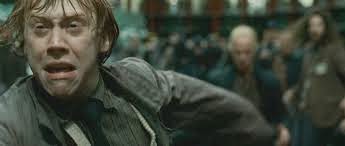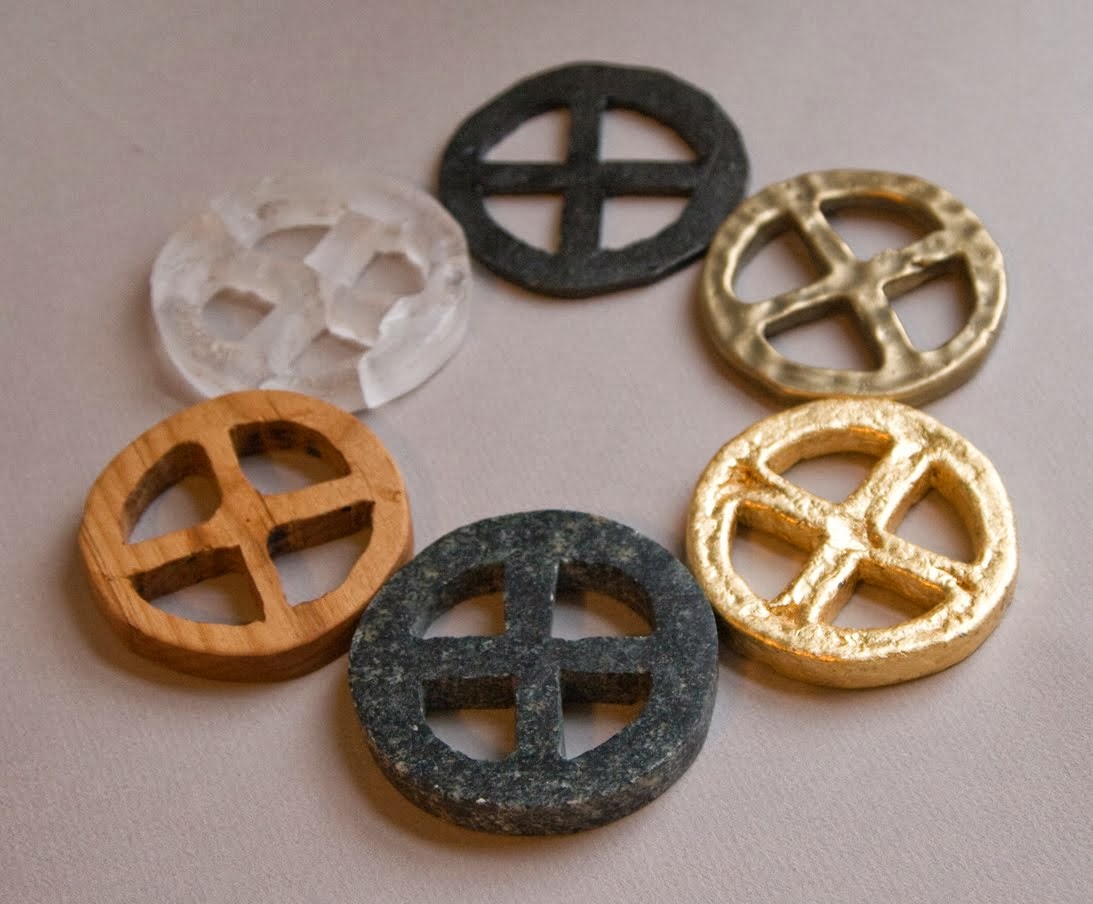It is the Christmas season, and this time of year my thoughts always turn to Harry Potter as I mentally and emotionally prepare to send at least three text and Facebook messages saying "Happy Christmas, Harry" and wait for the natural response, "Happy Christmas, Ron."
In the sum total of all of Ronald's Hogwarts career he doesn't do a whole lot that is noteworthy (in a good way) that is unique to him. Even Neville proved his Gryffindorhood by whipping Godric's sword out of the Sorting Hat to absolutely destroy the final horcrux (Nagini) and open the door to Harry doing his defeating Voldemort thing. What was it in Ron's life that made him so overwhelmingly mediocre? I tried for quite some time to piece it all together. Was there a moment that lead to his screaming normalcy (with mediocre wizard powers), or was it a confluence of circumstances?
Sure, he came from a large family and might have felt overshadowed, but let's look at his other siblings. Charlie became successful working with dragons, Bill successfully broke curses (and totes won Fleur's heart), Percy earned moderate success in the Ministry of Magic pretty quickly, Fred and George became wealthy entrepreneurs (before they left Hogwarts), Ginny achieved success as a Quidditch player and sports reporter. So all of his siblings did remarkably well at what they loved. Statistically the success of that family is crazy. Ron's averageness helps balance it. So if everyone else in the family is able to excel in spite of the family dynamic, and probably because of it.
Then it all came to me. All of his mediocrity can be traced back to his first train ride to Hogwarts.
First off he fell in with the famous Harry Potter. While we all say that we shouldn't compare ourselves with others, it must be hard to not do so when you meet someone who from their birth has received more attention than you have received cumulatively in your entire life. What's more, just being around Harry brought attention to Ron. Just by sticking with Harry, Ron go to go on some sick adventures, break rules, and even share in the glory of winning the House Cup. Why excel when all of your dreams are being satisfied without effort on your part? And when you add on the fact that Ron's best friend was academically challenged and shenanigan-ally gifted, Ron's behavior couldn't help but change to match.
Secondly, and I think that this played more of a role in Ron's mediocrity, was the failed spell he used on Scabbers. Let's look at this in more depth. Ron said that Fred and George gave him the spell, and after failing to cast it correctly he expresses his concern that Fred and George gave him a fake spell to screw around with him. But what benefit would Fred and George get from that? Ron was probably going to test out the spell alone. We see throughout the books that they only play tricks when they get to see the payoff. They love to revel in their own brilliance as their plots and plans come to fruition. On top of that, Fred and George are brilliant and invent magic other people have never seen (example: the Swamp in Book 5). Deep down Ron knows this, and failing to cast the spell correctly shakes his confidence to the core. From the very beginning he gets it into his head that he lacks magical talent, and this belief leads to nerves and doubts impairing his performance in every class (and life).
So why didn't that spell work? Fred and George developed it to work on rats. Was Scabbers a rat? No, he was a person, an animagus. I can only imagine that would definitely change the effectiveness of a spell. Case in point: the Cruciatus Curse and Avada Kedavra both require intent and focus to work effectively. So if you need hate in your heart to torture or kill someone with a curse, is it really that hard to think that a spell designed for a rat wouldn't work right on a human in rat form?
But then again, maybe Ron just didn't have that much potential to begin with. Dumbledore didn't seem to think so, though, and did what he could to nurture and draw out that hidden potential. Shoot, he gave Ron a stupid amount of points for playing a game of chess (and demonstrating a remarkable level of self-sacrifice), and then later he made him Prefect instead of Harry. Even Harry tried to unlock Ron's potential by tricking Ron to get out of Ron's way to become a Quidditch hero. Ron's doubts (the one's that started with failing to perform a simple spell) became Ron's worst enemy.
The final piece of evidence, and the part of the series that never jived with me. Down in the Chamber of Secrets Ron had every reason to move forward. His little sister was trapped, alone, dying in the depths of the Chamber. As a brother myself I know that nothing would have stopped me from tearing in there and throwing down on the spiritual manifestation of Tom Riddle. Now, if Ron had done that he probably would have been killed by the basilisk, but I think everyone would agree that it would have been the most understandable reaction. He chose to stay behind. He let Harry, who had no good reason other than being a friend and having an insatiable drive toward self-destruction, go in his place. Only a man crippled by his own doubts, who believed he could never accomplish his goals, would hand off his fraternal responsibility for his sister to his friend (who he had known for less than two years, and who had not even gone through puberty).
So what's the moral of the story? We should not allow one failure and the ease of following the path of least resistance to rob us of all the things we want to enjoy. When Ron looked in the Mirror of Erised he saw himself earning all of the honors that he could only hope for. And let's be honest, after that ferocious chess match I have no doubt that Ron could have earned those if he had turned his stupid, fat rat yellow and had a better, more academically inclined friend earlier on (like, before Halloween).
















